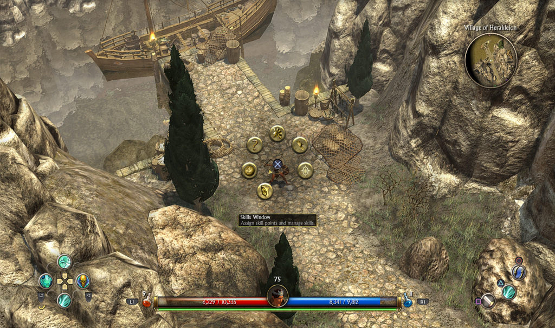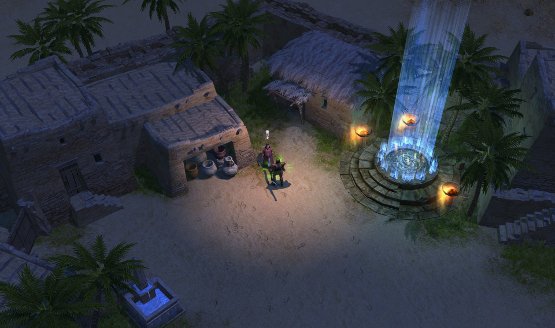After getting a second expansion for the Anniversary Edition over ten years after the original PC game released, it isn’t much of a surprise that, under the publishing of THQ Nordic, Titan Quest is finally making its way to home consoles. The long and arduous gap between Diablo II and Diablo III may have been a blessing in disguise for the game’s early success a decade ago, but the remastered version must now stake its claim among a vast sea of modern titles and a gaming industry that has evolved by many magnitudes.
Clash of the Titans
Titan Quest is set against the backdrop of a tried and true formula when it comes to Greek tales. One of the game’s designers, Ben Schneider, explained that the simple setup of a new generation toppling the old guard was enough to keep the story going. While this may sound like a retreading of all the Greek myths you’ve ever heard, the recounting of these stories in the game’s many towns and settlements makes the world feel lived-in and authentic. These dialogue passages from NPCs are completely optional, but they contain the only interesting narrative moments in an adventure that lasts a few dozen hours or so. The rest concerns your everyday hero and an over-the-top plot about Titans and a bunch of other Greek figures that you’ve probably met in the God of War games.
You’ll visit a few different continents as you fight your way through a horde of mythical monsters, although these locales all look too similar, and this is the underlying problem of Titan Quest. Most of the game isn’t that fun, and even the bits of role-playing genius here and there are never fully realized from start to finish. The game constantly takes one step forward to then takes two steps back, and it culminates in an experience that is too inconsistent to derive any enjoyment from. One of the many bits of genius is the game’s class system where players can use their earned skill points to acquire all manner of abilities with my personal favorite being a trusty wolf side-kick.
The game starts to branch out with some unique builds that require you to approach enemies with different tactics in mind, but this only helps the latter parts of the game, as there is very little to distinguish the classes early on. By the time I earned enough skill points to experiment with other classes, I had already formed a winning strategy with a certain build and there wasn’t much in the way of encouraging and rewarding players who decide to branch out. It’s a bit of a domino effect wherein you are punished if you do and punished if you don’t, and the entire adventure is full of promising moments that are then crushed by flawed design decisions.
A Decades Difference
While the story and the design of the game have their pros and cons, the aspects of Titan Quest that are as a result of the time that it was created do not fare so well. While I understand that an action RPG from 2006 isn’t going to be the beacon of buttery smooth gameplay, there is just no denying how far the genre has come in a relatively short period of time. Combat essentially consists of walking up to an enemy and then mashing a button to drain their health meter before they drain yours. Your character is stuck in place the entire time, and while there are a plethora of weapons to choose from, it is akin to the new DOOM reboot where you’re just doing the same thing the entire time. Boss fights require a greater level of strategy and they regularly drop high-level loot, but there’s almost no need to engage the game in any tactical manner whatsoever.
However, the worst of it all has to be the game’s UI. The official site for the console port states, “Tailor made UI and controls for a perfect ARPG experience using a gamepad.” I haven’t played the original PC version or the Anniversary Edition, but there may be a reason while Diablo III took so long to land on home consoles and that might have to do with making a PC game make sense on a gamepad. There’s just far too much clutter and visual information on the screen, which is exacerbated by the fact that nearly every enemy drops loot which forces the player to use the portal to get back to town and engage with the UI on a regular basis. To be fair to Titan Quest though, the problem extends to many modern RPGs like the recently released Kingdom Come: Deliverance, which similarly throws a wall of text at the player upon opening the inventory and skills menus.
The best similitude I can make regarding the remastered version of Titan Quest is that of a game that attempts to sneak into an era that has long passed it by. While a minimal amount of enjoyment can be had listening to the wayfarers and tradesmen across the many worlds that the hero visits, there are too many problems that stem from the game’s now ancient design. While titles like Shadow of the Colossus can confidently hold their own in a decade that they were not intended for, it may be a bittersweet sign of the swift progression in the industry that most titles are just not good enough anymore.
Titan Quest review code provided by publisher. Version 1.01 reviewed on PS4 Pro. For more information on scoring please see our Review Policy here.
-
Skill tree
-
NPC chatter
-
Archaic UI
-
Clunky combat
-
Underlying design problems
Titan Quest Review
-
Titan Quest Review #1
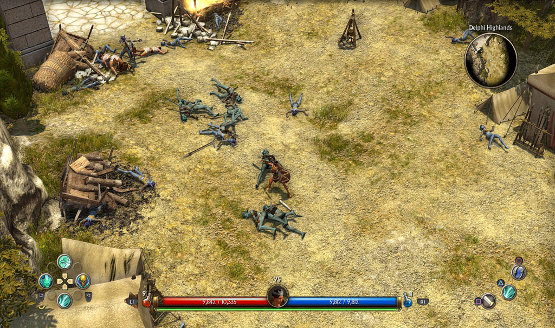
-
Titan Quest Review #2
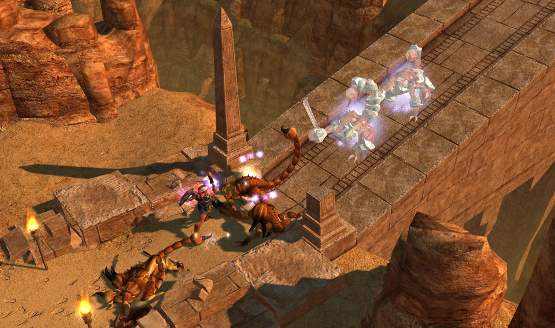
-
Titan Quest Review #3
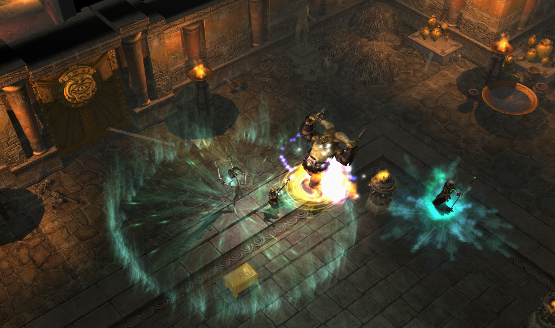
-
Titan Quest Review #4
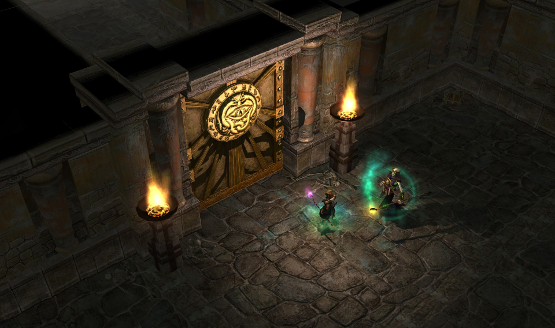
-
Titan Quest Review #5
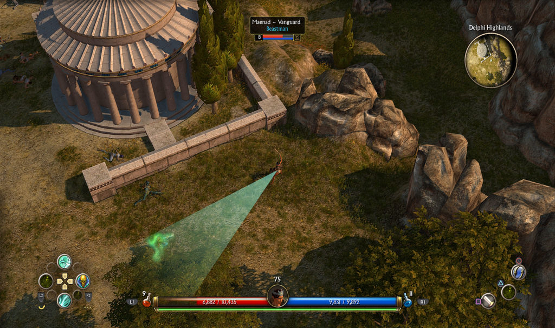
-
Titan Quest Review #6
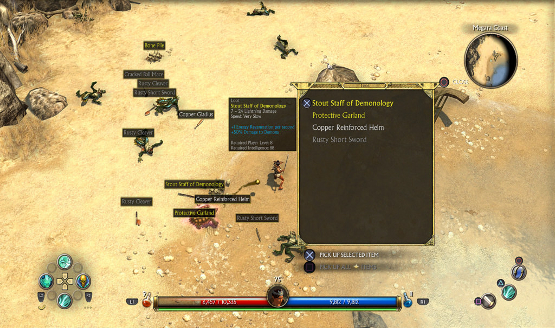
-
Titan Quest Review #7
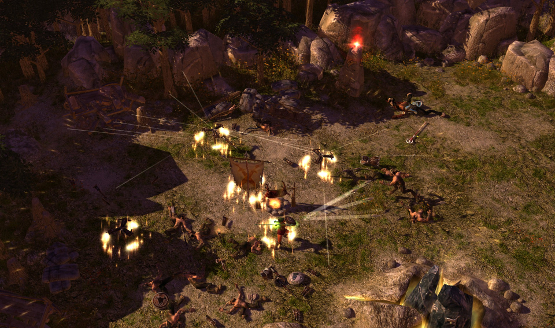
-
Titan Quest Review #8
